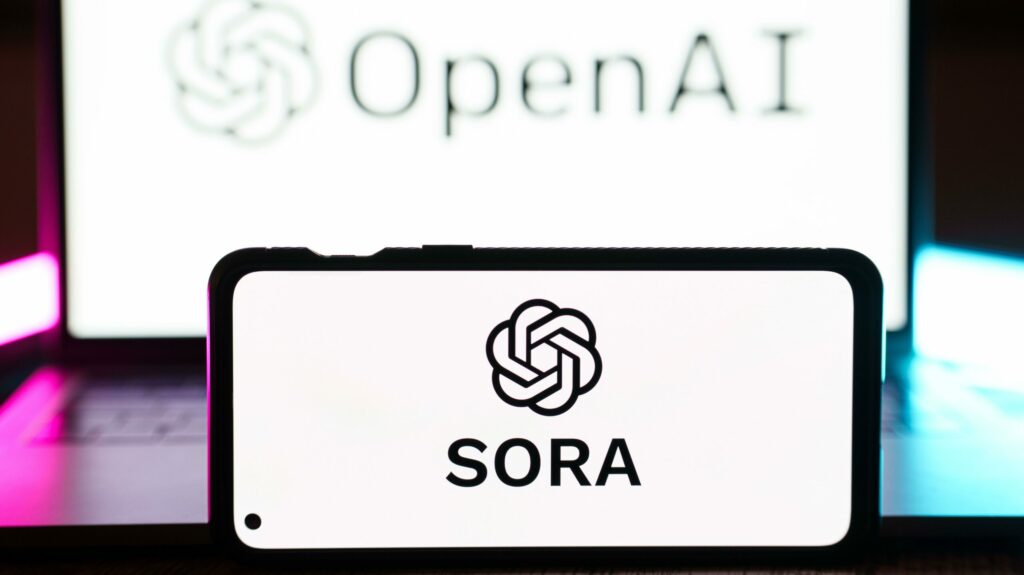
The movie industry is on the cusp of a significant transformation as OpenAI prepares to introduce “Sora” to the executives of Hollywood studios and talent agencies. Sora, an AI-based text-to-video generator, is set to redefine traditional film production methods, which could entirely change how movies are produced.
Having witnessed firsthand the transformative capabilities of Sora, Tyler Perry has chosen to postpone his plans to expand his Atlanta studio. Initially envisioned as an $800 million project encompassing 12 new soundstages across his expansive 330-acre estate, Perry’s expansion ambitions have been put on indefinite hold. This decision, catalyzed by the groundbreaking advancements showcased during Sora’s debut on February 15th, has left industry insiders astounded by the unparalleled cinematic prowess exhibited by the AI. This hiatus in Perry’s plans underscores the seismic impact that Sora could have on the future of film production, sparking widespread anticipation and speculation within the entertainment industry.
Perry expressed his enthusiasm, stating, “Being told that it can do all of these things is one thing, but actually seeing the capabilities, it was mind-blowing.” However, he also voiced concerns about the advancements in AI technologies, saying, “There’s got to be some regulations in order to protect us. If not, I don’t see how we survive.”
As OpenAI gears up for Sora’s public release later this year, the company is actively engaging with various stakeholders in the entertainment industry. The goal is to foster a collaborative environment where AI can be integrated into creative processes in a phased manner, ensuring that the technology benefits the industry rather than disrupting the ecosystem.
OpenAI has provided Sora access to a select group of artists, enabling them to explore and leverage its capabilities in their creative endeavors. This initiative has yielded a variety of innovative videos, which were recently shared on OpenAI’s blog.
One such creation, “Air Head” by the multimedia group Shy Kids, has garnered significant attention. The short film features a protagonist with a balloon head navigating a world where the surreal seamlessly blends with reality. Similarly, Don Allen Stevenson III’s “Beyond Our Reality” captivates audiences with its imaginative depiction of hybrid animals, resembling a nature documentary. These works showcase Sora’s potential to innovate storytelling and offer a glimpse into future possibilities for artistic expression.
The Take
The introduction of Sora to Hollywood signifies more than just a leap in technological prowess; it marks a pivotal juncture in the ongoing dialogue between innovation and tradition within the entertainment industry.
After firsthand experience with Sora, Tyler Perry’s opinion is a critical reminder of the dual-edged nature of technological advancement. While the opportunities for enhanced creativity and production efficiency are undeniable, there is an equally pressing need to consider the implications for the human element that remains at the heart of storytelling.
Perry’s decision to pause the expansion of his Atlanta studio highlights the magnitude of AI’s impact on the industry’s future. It is a call to action for stakeholders across the sector to engage in meaningful discussions about integrating AI technologies like Sora. The goal is to harness their potential while ensuring that the industry evolves in a manner that respects and protects its workforce.
As OpenAI moves forward with Sora’s public release, the experimental videos produced by artists offer a glimpse into the future of entertainment, where AI’s role in creative processes is both innovative and collaborative. These early explorations with Sora highlight the limitless possibilities that AI can bring to storytelling and visual art, promising a future where technical limitations no longer constrain creative visions.
In these evolving trends, the balance between embracing innovation and safeguarding the interests of the creative community will be paramount. Perry aptly notes that the path forward must include regulatory measures protecting the industry’s workforce. The journey ahead is one of collaboration and thoughtful integration, where the collective efforts of technologists and creatives will shape the next chapter in the entertainment story.